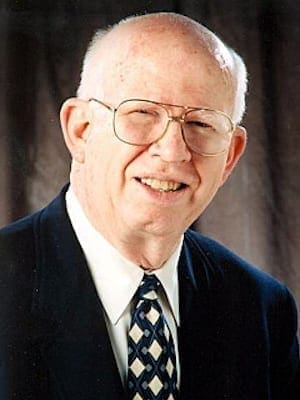Our democracy is a fragile thing. The noble experiment we call the United States rests on the principle of mutual respect for one another. The question is as old as we are as a nation: Are ordinary human beings capable of governing themselves? No other country has ever tried it.
I know in my heart you are a scoundrel, and you probably think I am one, too – or worse. In spite of that, can we build and maintain a country?
Perhaps the overblown rhetoric accompanying the last election and the overheated debate in Congress over healthcare reform had nothing to do with the terrible shootings of U.S Rep. Gabrielle Giffords (D-Ariz.) in Arizona, but can we afford to take that chance? Debate is at the center of our democracy, and it has not always been polite or respectful, but people who have their act together can handle the conflict.
The trouble comes from those who operate on the thin edge of sanity. How much does it take to nudge such a person over the line, and am I responsible? No one ultimately is responsible for the act but the perpetrator, but did I help create the atmosphere that may have made violence seem appropriate or even acceptable?
However we answer that question, one thing is clear: Language has consequences. Words are powerful, and when they are carelessly unleashed, disaster almost always ensues. Words represent what is in our hearts or, more accurately, our brains. The psalmist is correct: “A soft answer turneth away wrath.”
My college friend, Bob Wyatt, now an Episcopal priest in Virginia, says, “I do believe that speech in America has lost its good manners.”
As a teenager and later as a college student, I loved politics. I listened to both the Republican and Democratic national conventions – although there were no above-ground Republicans in South Carolina in those days. That didn’t happen until racial integration gave the South the two-party system.
The conventions were fun and the rhetoric often soared. I listened until they signed off the air for the night. What a difference today. The speeches attack individuals, explode with outright lies and half-truths, and lack inspiration and ideas.
Sheriff Clarence Dupnik of Pima County may be correct in his assessment of the causes of the shootings that took six lives in Arizona: “This may be free speech, but it is not without consequences.” Words – good, bad or indifferent – have consequences.
Former president Ronald Reagan liked to say, “There is no free lunch.” The same is true for our words. There are no free words. Small talk isn’t small. It connects us. Hate speech isn’t just words. It is a lethal weapon. “Sticks and stones may break my bones, but words can never hurt me” is false. No knife cuts as sharply as words. It’s imperative to choose words carefully.
For any of us to deny that words have consequences would require that we abandon all recorded history, that we forsake the Bible and the teachings of Jesus.
If words do not have consequences, what are we doing in our churches or on mission fields? If words have no consequences, what will we do with the rhetoric of Franklin Roosevelt, Winston Churchill, John Kennedy or President Obama? When you draw a target on a political district and your rhetoric says, “Reload,” what are your expectations?
As responsible citizens, it is our right and responsibility to challenge ideas or programs we feel are misguided or wrong; however, our attack must be on the ideas or programs. We are obligated to steer clear of attacks on the person, and we are never to engage in gossip about our adversary. We are to speak the truth in love, not in bitterness or hatred.
In other words, we are to be responsible communicators.
Mitch Carnell is a communication consultant who works with all types of organizations, including churches. He is the editor of “Christian Civility in an Uncivil World.” He is a member of First Baptist Church of Charleston, S.C., and blogs at www.mitchcarnell.com.
A member of First Baptist Church of Charleston, South Carolina, he was the author of “Our Father: Discovering Family.” Mitch’s writings can be found at MitchCarnell.com.

